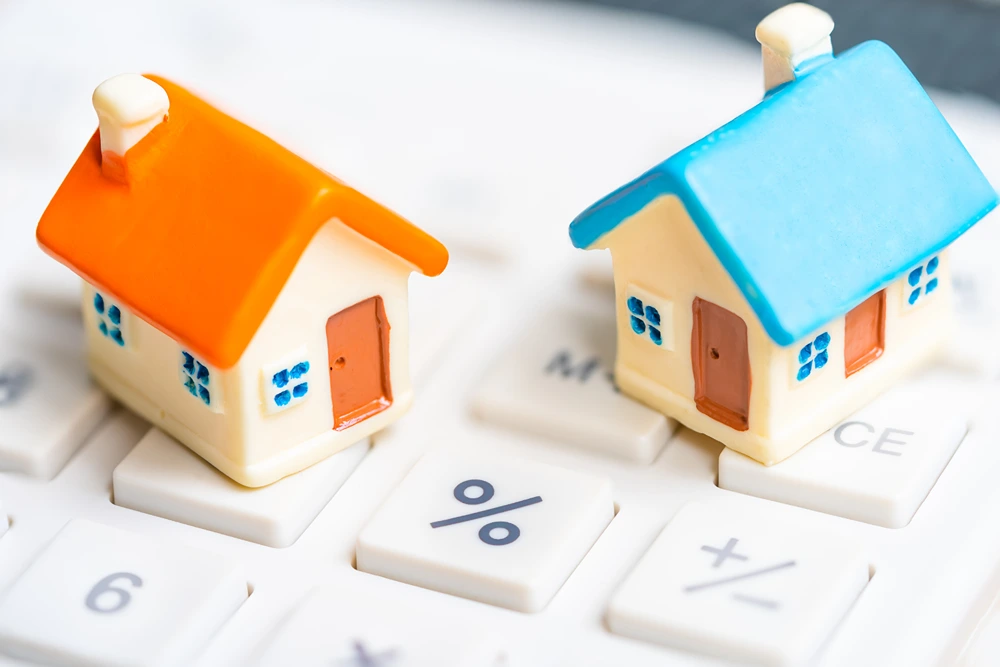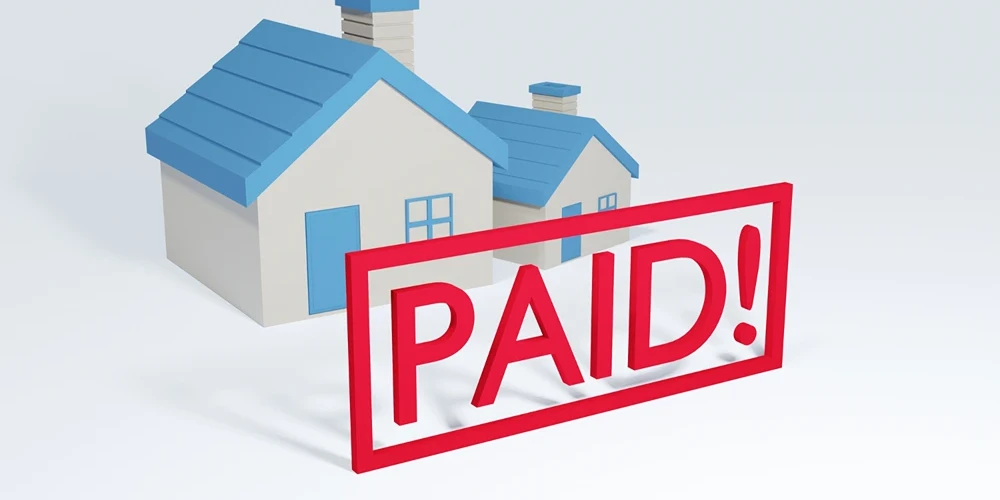Should you really pay off your mortgage early or could that be a financial misstep? Imagine saving tens of thousands in interest alone – appealing, isn’t it? But is the path that straightforward, or are there hidden challenges? In this article, you’ll discover the pros and cons of early mortgage payoff, ranging from significant interest savings and increased cash flow to potential tax implications and liquidity concerns. Whether you’re seeking financial freedom or juggling investment opportunities, understanding these aspects can make all the difference. Dive in to see how early mortgage payoff might align with your financial goals. If you’re considering other mortgage options, you might also be interested in learning about mortgage on land in the UK. Understanding the nuances of different mortgage types can further inform your financial decisions.
Interest Savings from Paying Off a Mortgage Early
Mortgage interest accrues over the life of the loan, significantly increasing the total amount paid. Interest is typically front-loaded, meaning a larger portion of initial payments goes towards interest rather than principal. By paying off a mortgage early, homeowners can reduce the total interest paid.
Potential Savings
Consider a £300,000 mortgage at a 4% interest rate. Paying off this mortgage 10 years early could save approximately £70,000 in interest payments. Similarly, a £200,000 mortgage at the same interest rate, paid off 10 years early, could save over £40,000 in interest. These savings can be substantial, freeing up funds for other financial goals.
Comparative Chart of Interest Savings
Below is a comparative chart illustrating interest savings for different mortgage amounts and payoff periods:
| Mortgage Amount | Interest Rate | Original Term | Early Payoff Term | Interest Savings |
|---|---|---|---|---|
| £300,000 | 4% | 30 years | 20 years | £70,000 |
| £200,000 | 4% | 30 years | 20 years | £40,000 |
| £150,000 | 4% | 30 years | 25 years | £20,000 |
| £100,000 | 4% | 30 years | 25 years | £15,000 |
Paying off a mortgage early offers significant interest savings, making it a financially prudent decision for many homeowners.

Increased Cash Flow and Financial Flexibility
Paying off a mortgage early can significantly increase cash flow and financial flexibility. Eliminating monthly mortgage payments frees up funds that can be redirected towards other expenses or investments.
Additional Monthly Cash Flow
Homeowners can expect a substantial increase in monthly cash flow after paying off their mortgage. For instance, if a homeowner’s monthly mortgage payment is £1,000, paying off the mortgage early would free up that £1,000 each month. This additional cash can be utilised in various ways to enhance financial stability and personal well-being.
Reallocation of Extra Cash
The extra cash freed up from eliminating mortgage payments can be allocated to several other areas:
- Investments: Investing in stocks, bonds, or mutual funds can yield higher returns over time.
- Travel: Use the additional funds to explore new destinations and experiences.
- Retirement Savings: Contribute more to retirement accounts, such as ISAs or pensions.
- Emergency Fund: Build a robust emergency fund to cover unexpected expenses.
- Home Improvements: Renovate or upgrade your home to increase its value.
- Education: Save for children’s education or pursue further education yourself.
- Charitable Giving: Donate to causes and charities you care about.
Potential Uses for Freed-Up Cash
Here is a list of potential uses for the extra cash flow:
- Investments
- Travel
- Retirement savings
- Emergency fund
- Home improvements
- Education
- Charitable giving
By reallocating the funds from mortgage payments, homeowners can achieve greater financial flexibility and security, allowing them to better manage their finances and enjoy a more fulfilling lifestyle.
Psychological Benefits of Debt-Free Living
Debt-free living provides substantial psychological benefits, offering peace of mind and financial security. Eliminating a significant debt like a mortgage can lead to immense mental relief. Without the burden of monthly mortgage payments, homeowners often experience reduced financial stress. This newfound peace of mind can contribute to overall well-being and a more relaxed lifestyle. Debt-free living also enhances a sense of security. Knowing that the home is fully paid off can alleviate worries about potential financial hardships. For example, in the event of job loss or unexpected expenses, the absence of a mortgage payment can make managing finances much easier. Reducing financial stress and increasing a sense of security are key psychological benefits of paying off a mortgage early. However, it’s also important to consider how owning a house affect benefit claims. Understanding these aspects can provide a more comprehensive view of your financial well-being. These benefits can lead to improved mental health and a greater sense of personal freedom.

Loss of Tax Benefits from Early Mortgage Payoff
Paying off a mortgage early can lead to the loss of valuable tax benefits.
Mortgage Interest Deductions
Mortgage interest is typically tax-deductible, which can lower a homeowner’s taxable income. This deduction is especially beneficial in the early years of a mortgage when interest payments are higher. By reducing taxable income, the mortgage interest deduction can result in significant tax savings.
Financial Impact of Losing Deductions
Eliminating the mortgage means losing the mortgage interest deduction, which can increase your tax liability. For instance, if a homeowner pays £10,000 in mortgage interest annually, losing this deduction could result in a higher taxable income by the same amount. This increase might push the homeowner into a higher tax bracket, resulting in a larger tax bill.
Tax Implications
Here are some potential tax implications to consider:
- Increased Taxable Income: Without the mortgage interest deduction, your taxable income could rise.
- Higher Tax Bracket: The increase in taxable income might push you into a higher tax bracket, leading to a higher overall tax rate.
- Reduced Deductions: Losing the mortgage interest deduction means fewer deductions to offset other income.
- Impact on Itemised Deductions: If mortgage interest is a significant part of your itemised deductions, losing it could make itemising less beneficial.
- State Taxes: Some states also allow mortgage interest deductions, so losing them can affect state tax liabilities as well.
Paying off a mortgage early can lead to increased tax liabilities due to the loss of mortgage interest deductions, which can significantly impact overall financial planning. Additionally, understanding the implications of tax on a parent’s house inheritance can help you navigate other potential tax scenarios that may arise in your financial journey.
Liquidity Concerns and Financial Emergencies
Using a large amount of cash to pay off a mortgage can significantly reduce liquid assets, which are crucial for handling emergencies or unexpected financial situations. Maintaining liquidity is essential for financial stability and flexibility.
Importance of Liquid Assets
Liquid assets, such as cash and easily accessible funds, provide a financial cushion in case of emergencies. These assets can be quickly converted to cash without a significant loss in value, ensuring that funds are available when needed. Reducing liquid assets by paying off a mortgage early can limit your ability to respond to unforeseen expenses.
Potential Financial Emergencies
Several types of financial emergencies can arise, making it essential to maintain adequate liquidity:
- Medical Emergencies: Unexpected medical bills can be substantial and require immediate payment.
- Job Loss: Losing a source of income necessitates having sufficient liquid assets to cover living expenses until new employment is found.
- Home Repairs: Major repairs, such as fixing a roof or replacing a heating system, can be costly and urgent.
- Car Repairs: Essential for transportation, unexpected car repairs can strain finances if liquid assets are insufficient.
Comparative Table: Liquidity Differences
The table below illustrates the difference in liquidity between paying off a mortgage early and maintaining a mortgage with a larger emergency fund:
| Scenario | Liquid Assets | Mortgage Balance | Emergency Fund |
|---|---|---|---|
| Pay Off Mortgage Early | £10,000 | £0 | £5,000 |
| Maintain Mortgage | £50,000 | £100,000 | £25,000 |
| Pay Off Mortgage Early | £15,000 | £0 | £7,500 |
| Maintain Mortgage | £60,000 | £200,000 | £30,000 |
Maintaining higher liquid assets provides greater financial flexibility to manage emergencies. In addition, you might want to explore ways to shield your home from care costs. This can be a crucial step in ensuring that your home remains protected in the face of potential long-term care expenses. Homeowners should carefully consider the impact on liquidity before deciding to pay off their mortgage early.
Opportunity Costs and Alternative Investments
Paying off a mortgage early comes with opportunity costs, as the money used could potentially earn higher returns if invested elsewhere.
Potential Alternative Investments
Several investment options could yield better returns compared to the amount saved in mortgage interest. These include:
- Stocks: Historically, stock markets have provided higher returns over the long term compared to mortgage interest rates.
- Retirement Accounts: Contributions to retirement accounts like ISAs or pensions can offer tax advantages and compound growth.
- Bonds: While typically lower in return than stocks, bonds are generally more stable and can diversify an investment portfolio.
- Mutual Funds: These funds pool money from many investors to buy a diversified portfolio of stocks and bonds.
- Real Estate: Investing in rental properties or real estate investment trusts (REITs) can generate rental income and capital appreciation.
- Savings Accounts: High-yield savings accounts or certificates of deposit (CDs) offer safe, albeit lower, returns.
- Business Ventures: Investing in a business or startup can provide substantial returns, albeit with higher risk.
Comparison of Potential Returns
When considering paying off a mortgage early, it’s crucial to compare the potential returns from alternative investments. For instance, if a homeowner has a mortgage at a 4% interest rate, paying it off early would effectively save 4% annually on the outstanding balance. However, historical stock market returns average around 7-10% annually.
| Investment Type | Average Annual Return | Risk Level |
|---|---|---|
| Mortgage Payoff | 4% | Low |
| Stocks | 7-10% | High |
| Retirement Accounts | 5-8% | Moderate |
| Bonds | 2-5% | Low |
| Mutual Funds | 5-8% | Moderate |
| Real Estate | 6-9% | Moderate |
| Savings Accounts | 1-2% | Low |
Alternative Investment Opportunities
Here is a list of potential alternative investment opportunities:
- Stocks
- Retirement accounts
- Bonds
- Mutual funds
- Real estate
- Savings accounts
- Business ventures
Considering these opportunities can help homeowners make a well-informed decision about whether to pay off their mortgage early or invest their money elsewhere for potentially higher returns. Additionally, understanding the dynamics of selling in a buyer’s market can provide further insights into the real estate landscape, helping you make more strategic financial decisions.

Real-Life Scenarios and Expert Opinions
Examples of Benefiting from Early Payoff
One family decided to pay off their mortgage early, leading to significant financial freedom. Without the burden of monthly mortgage payments, they were able to allocate more funds toward travel, education, and retirement savings. The reduction in financial stress resulted in a more relaxed and enjoyable lifestyle. Another scenario involves an individual who paid off their mortgage early and felt a tremendous sense of security. Knowing that their home was fully paid off provided peace of mind and eliminated worries about future financial hardships.
Examples of Challenges Due to Early Payoff
Conversely, another individual faced challenges after paying off their mortgage early. They encountered a medical emergency that required substantial funds. The lack of liquidity due to using most of their savings to pay off the mortgage left them financially strained, highlighting the importance of maintaining liquid assets.
Expert Opinions
Financial advisors have varied opinions on early mortgage payoff. Some recommend it for the peace of mind and debt-free living it provides. They argue that eliminating mortgage payments can reduce financial stress and improve overall well-being. Other advisors suggest investing the extra money instead. They point out that alternative investments, such as stocks or retirement accounts, may offer higher returns compared to the interest saved by paying off the mortgage early. This approach can potentially grow wealth more effectively over time.
Summary of Expert Advice
Here are some key points from financial experts:
- Peace of Mind: Paying off a mortgage can provide psychological relief and reduce financial stress.
- Alternative Investments: Investing extra funds might yield higher returns than the interest saved.
- Liquidity: Maintaining liquid assets is crucial for handling emergencies.
- Financial Goals: Consider personal financial goals and whether paying off the mortgage aligns with them.
- Interest Rates: Compare the mortgage interest rate with potential returns from investments to make an informed decision.
By examining real-life scenarios and expert opinions, homeowners can better understand the pros and cons of paying off their mortgage early and make a decision that aligns with their financial goals and circumstances.
Comparative Charts: Mortgage Payoff versus Investment Returns
Interest Savings vs Potential Investment Returns
Comparative charts can effectively illustrate the financial impact of paying off a mortgage early versus investing the extra funds. Below is a chart showcasing the difference in interest savings and potential investment returns.
| Scenario | Interest Savings | Potential Investment Returns |
|---|---|---|
| Pay Off Mortgage Early | 4% | 4% |
| Invest in Stocks | 0% | 7-10% |
| Invest in Bonds | 0% | 2-5% |
| Contribute to Retirement Accounts | 0% | 5-8% |
This chart highlights that while paying off a mortgage early yields a guaranteed savings equivalent to the mortgage interest rate (typically around 4%), investing in stocks or retirement accounts could potentially offer higher returns, albeit with increased risk.
Tax Implications of Early Payoff vs Maintaining Mortgage
Another crucial aspect to consider is the tax implications of paying off a mortgage early versus maintaining it. Here’s a comparative chart for better visualisation:
| Scenario | Tax Deduction (Annual) | Taxable Income Impact |
|---|---|---|
| Maintain Mortgage | £10,000 | Reduced by £10,000 |
| Pay Off Mortgage Early | £0 | Increased by £10,000 |
The chart shows that maintaining a mortgage allows for continued tax deductions on mortgage interest, reducing taxable income. Paying off the mortgage early eliminates this deduction, potentially increasing your tax liability.
Explanation
These charts underscore the importance of a comprehensive cost-benefit analysis. The first chart demonstrates how alternative investments might yield higher returns compared to the interest savings from paying off a mortgage early. The second chart emphasises the tax implications, showing how maintaining a mortgage can provide ongoing tax benefits that would be lost if the mortgage is paid off early. By examining these comparative charts, homeowners can make more informed decisions about whether to pay off their mortgage early or explore other financial strategies.
Frequently Asked Questions on Early Mortgage Payoff
Will paying off my mortgage early affect my credit score?
It may slightly lower your credit score by reducing your credit mix, but the impact is generally minimal. Your credit mix accounts for a small portion of your overall score, and other factors like payment history and credit utilisation have a more significant impact.
Should I pay off my mortgage if I have other debts?
It’s usually better to pay off higher-interest debts first before focusing on your mortgage. High-interest debts, such as credit card balances, can accumulate quickly and cost more over time. Prioritising these debts can save more money in the long run.
How do I decide if paying off my mortgage early is right for me?
Consider factors like your financial goals, interest rates, tax situation, and alternative investment opportunities. Consulting with a financial advisor can also help. Evaluating these aspects will provide a clearer picture of whether early mortgage payoff aligns with your overall financial strategy.
Final Words
Saving interest by paying off a mortgage early can result in significant financial benefits, enhancing cash flow and financial flexibility. Debt-free living brings psychological peace, though it’s crucial to weigh the potential loss of tax benefits and liquidity concerns. Balancing opportunity costs and alternative investments is essential, as seen in various real-life scenarios and expert opinions. Comparative charts provide clear illustrations of financial impacts. Understanding the pros and cons of paying off a mortgage early, alongside frequently asked questions, helps make an informed decision. Embrace a strategy that suits your financial goals, leading to a more secure future.
FAQ
Q: How does paying off my mortgage early affect my monthly cash flow?
Eliminating monthly mortgage payments frees up money that can be used for other expenses or investments.
Q: What are some ways to use the extra cash from paying off my mortgage early?
Additional cash can be reallocated to investments, travel, retirement savings, home improvements, education, starting a business, and charitable donations.
Q: What are the psychological benefits of paying off a mortgage early?
Debt-free living provides psychological benefits, offering peace of mind and financial security.
Q: How does eliminating mortgage debt impact financial stress?
Eliminating a significant debt like a mortgage can reduce financial stress and increase a sense of security.
Q: How does paying off my mortgage early affect my tax deductions?
Mortgage interest is tax-deductible, and losing this deduction could increase your tax liability.
Q: What are the financial impacts of losing mortgage interest deductions?
Losing these deductions could mean a higher taxable income, potentially increasing your overall tax burden.
Q: What are the liquidity concerns associated with paying off a mortgage early?
Using a large amount of cash to pay off the mortgage reduces liquid assets, which can be problematic in emergencies.
Q: Why is maintaining liquid assets important?
Maintaining liquid assets is essential for handling potential financial emergencies and unexpected situations.
Q: What are the alternative investments to consider instead of paying off my mortgage early?
Potential alternative investments include stocks, retirement accounts, bonds, real estate, starting a business, education, and index funds.
Q: How do potential returns from alternative investments compare to paying off a mortgage?
Investing money elsewhere could potentially earn a higher return than the interest saved by paying off the mortgage.
Q: What are some success stories of people who paid off their mortgage early?
Some individuals enjoy financial freedom and reduced stress after paying off their mortgage early.
Q: What are some challenges faced by people who paid off their mortgage early?
Others faced challenges like reduced liquidity when faced with unexpected financial emergencies.
Q: How do comparative charts help in deciding between mortgage payoff and investment?
Comparative charts illustrate the difference in interest savings, tax implications, and potential investment returns between paying off a mortgage early and continuing regular payments.
Q: Will paying off my mortgage early affect my credit score?
It may slightly lower your credit score by reducing your credit mix, but the impact is generally minimal.
Q: Should I pay off my mortgage if I have other debts?
It’s usually better to pay off higher-interest debts first before focusing on your mortgage.
Q: How do I decide if paying off my mortgage early is right for me?
Consider factors like your financial goals, interest rates, tax situation, and alternative investment opportunities. Consulting with a financial advisor can also help.
Gerard Stack
As a proud Scot, Gerard deeply understands the local market dynamics. His strategic insights, negotiation skills, and client-centric approach make him the go-to expert for those looking to sell their homes quickly.
Related Posts
What Is a Joint Borrower Sole Proprietor Mortgage
September 24, 2024
Understanding what a joint borrower sole proprietor mortgage is can be crucial for aspiring homeowners. But did you know…
What Is a Link Detached House
September 23, 2024
Trying to understand what a link detached house is? You’re in the right place! We’ll uncover its mysteries and…
What is a TR1 Form and Its Purpose
September 20, 2024
What is a TR1 form? This key document is crucial for property transactions in the UK, but one critical detail might surprise you…
What Does POA Mean in Property Listings
September 19, 2024
Are you curious about the mysterious term POA in property listings? Understand its full meaning and significance—stay tuned!
Documents After Buying a House
September 18, 2024
Buying a house is just the beginning. Knowing which documents to keep is crucial. But did you realise what happens if…
What Does Vendor Suited Mean?
September 17, 2024
Curious about the term “vendor suited” in property transactions? Get ready to uncover its surprising impact and key advantages, but…
What is a Deed of Covenant?
September 16, 2024
Curious to uncover the ins and outs of legal agreements? Ever wondered, what is a deed of covenant? Let’s delve into…
What Is a Guarantor Mortgage?
September 13, 2024
Understanding the concept of what is a guarantor mortgage can significantly impact your home-buying process. But what if…
True Cost of Moving House UK
September 12, 2024
Ever wondered about the true cost of moving house in the UK? From estate agent fees to unexpected repairs, things might…
What Affects Property Prices
September 10, 2024
What affects property prices? Economic factors such as employment rates, inflation, and interest rates play a significant role. But what happens when…












